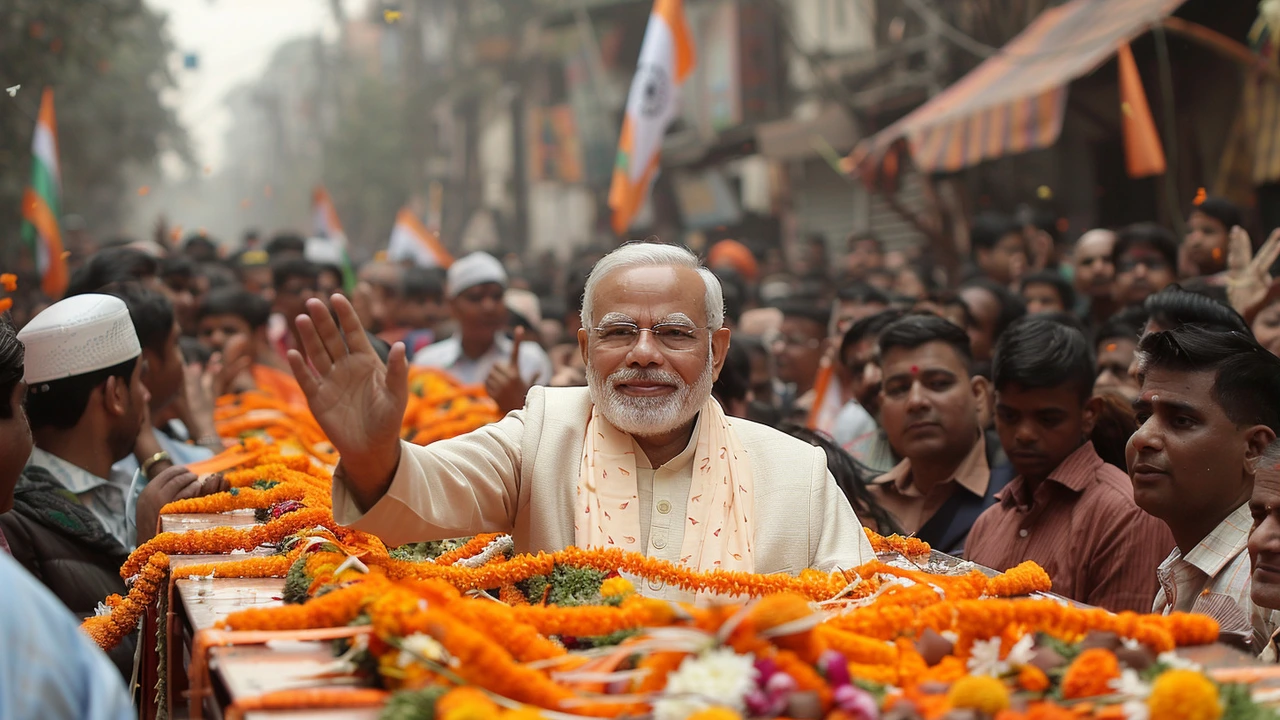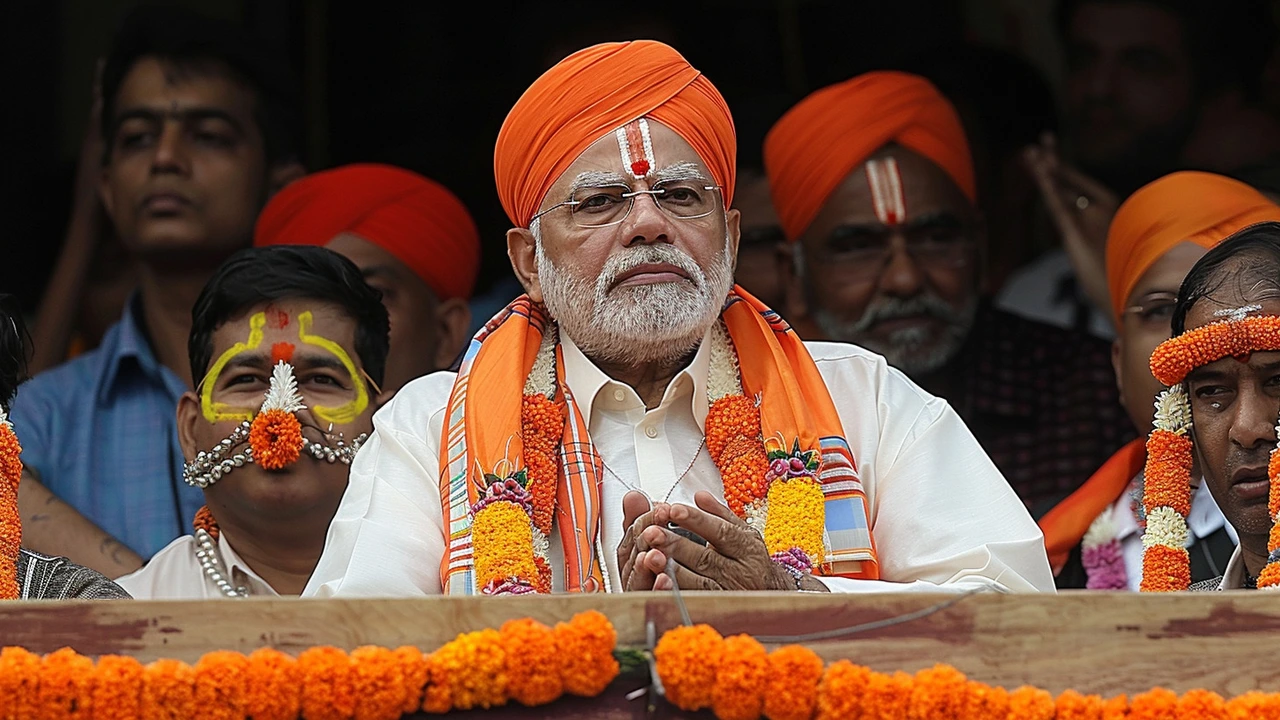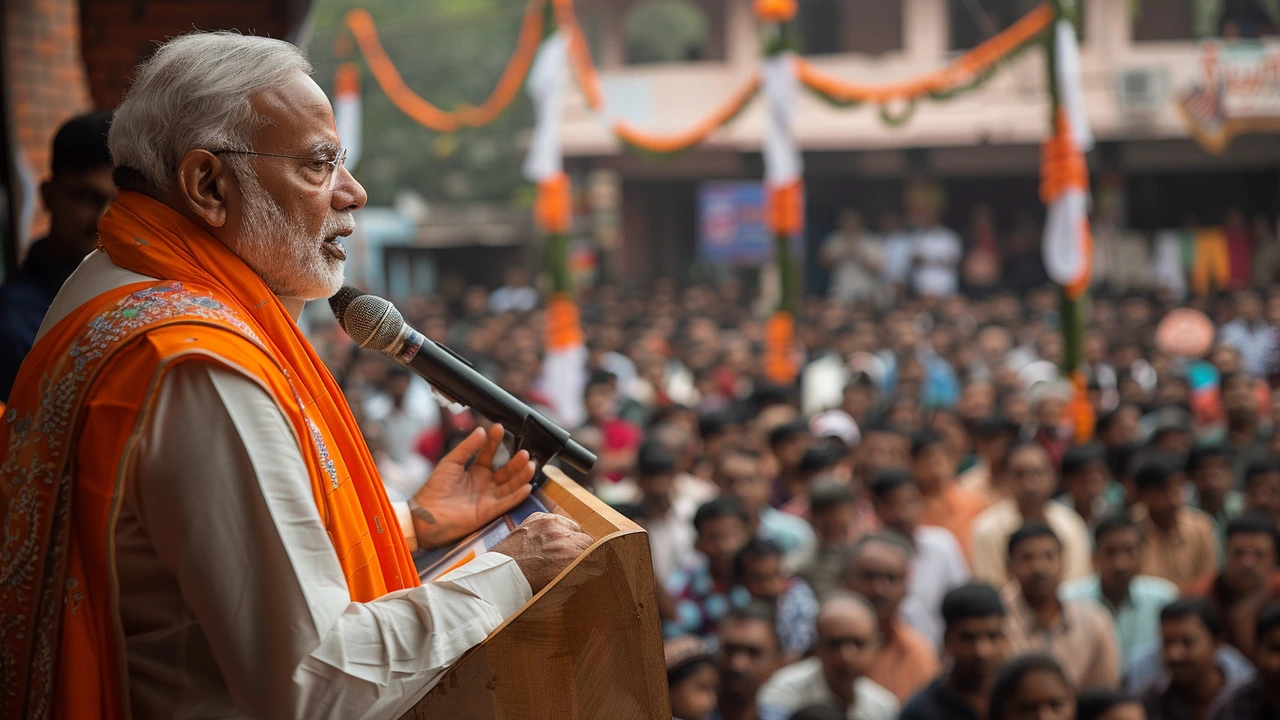Modi's Unprecedented Winning Streak Faces a Major Challenge
For over two decades, Prime Minister Narendra Modi has enjoyed a winning streak across Indian state and national elections. His reputation as an undefeatable political force seemed almost unassailable until now. Early vote tallies in the latest parliamentary elections reveal a startling trend: Modi’s Bharatiya Janata Party (BJP) might not secure a majority in the 543-member Lok Sabha. This unexpected turn offers insights into the evolving political landscape of India.
The initial counts have shaken the BJP, hinting that the party might have to rely heavily on its coalition partners to form a government. Such dependency marks a significant deviation from the dominant narrative that has defined Modi’s political career. Analysts have pointed out potential reasons for this shift, suggesting that Modi’s divisive rhetoric and the perceived overreach of his government have overshadowed his prior accomplishments.
Political Implications for Modi and the BJP
This electoral outcome serves as a referendum on Modi’s leadership style and policy directions. Over his tenure, Modi has been known for his strong nationalist stance, aiming to project India as a rising global power. However, critics argue that this aggressive approach has strained domestic relationships and alienated significant sections of the Indian populace. It appears that discussions centered on religious and cultural nationalism have taken precedence over economic and social issues, leaving many unsatisfied.
Additionally, the BJP’s challenges highlight a broader dissatisfaction among voters, particularly within the Hindu heartland, long considered a BJP stronghold. The sentiment suggests a shift toward alternative political voices, potentially signaling a new phase in India’s democratic journey.

Economic Repercussions and Market Reaction
Economic indicators reflect the unease surrounding this election’s outcomes. The plummeting of Indian stocks by 6 percent and the substantial loss in value for companies associated with industrial magnate and Modi ally Gautam Adani underline the market's apprehensions. Investors seem concerned about the stability and predictability associated with the BJP’s governance, especially in light of Modi’s ambitious economic reforms.
One of Modi's key promises has been labor reform, aimed at making India a more attractive destination for manufacturing and business investments. However, the uncertainty following the election results casts doubt on the viability of these reforms moving forward. Businesses and investors are left grappling with the question of whether a potentially fractured coalition can deliver on these promises.
The Role of Opposition and Emerging Dynamics
The Congress party and other opposition groups appear poised to capitalize on the BJP’s faltering numbers. Historically, the Congress party has been a major player in Indian politics, though it has faced significant setbacks over the past decade. The current scenario offers a revived platform for the opposition to reassert itself as a credible alternative to Modi’s BJP.
Furthermore, regional parties and smaller factions might play a pivotal role in influencing the next government’s formation. This is particularly relevant in a politically fragmented landscape where building alliances becomes crucial. The negotiation dynamics could significantly affect policy directions and administrative decisions in the years ahead.

Looking Ahead: Future of Modi's Agenda
The election results serve as a crucial juncture in India’s political narrative, raising questions about Modi’s capacity to continue pushing his policy agenda. From proposed labor reforms to infrastructural projects, the BJP has championed a vision of modernization and growth. However, with the uncertain election outcome, achieving these goals might now face significant hurdles.
It remains to be seen how Modi and the BJP will navigate this new political terrain. The potential need for coalition governance could lead to compromises and shifts in policy priorities. The coming weeks will likely see intense political maneuvering as parties jockey for position and power, with the eyes of the nation and the world watching closely.
The Indian electorate has exhibited a readiness for change, reflecting democratic resilience and the perennial search for responsive governance. As vote counts finalize, the journey of India’s democracy enters a new chapter, characterized by evolving dynamics and the vibrant pulse of its diverse populace.


Author
Ra'eesa Moosa
I am a journalist with a keen interest in covering the intricate details of daily events across Africa. My work focuses on delivering accurate and insightful news reports. Each day, I strive to bring light to the stories that shape our continent's narrative. My passion for digging deeper into issues helps in crafting stories that not only inform but also provoke thought.